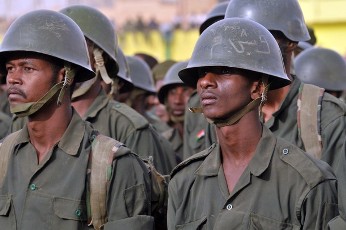South Sudan accuses Sudan’s army of new incursions
March 1, 2013 (KHARTOUM) – Khartoum has unleashed its forces in a new attempt to reoccupy Abyei and parts of South Sudan, the spokesperson of the South Sudan army has announced.

He further added that Khartoum has also mobilised elements of South Sudanese who are spearheading the reoccupation of Abyei and invasion of South Sudan under the command of Lt. Col. Thomas Bior Malual and Maj. William Deng Dau, respectively.
The two officers, he said, have been serving in the Sudan Armed Forces (SAF) even before the country split into two in July 2011, adding that by commanding the joint Rezeigat, Mujahideen and South Sudanese militia forces it proves that SAF is pushing for the reoccupation and the invasion of South Sudan.
Aguer accused Khartoum of reneging on the security arrangements for Abyei by reoccupying the area, as well as violating the September 27, 2012 agreement signed between the two Presidents, Salva Kiir and Omer el Bashir, in Addis Ababa, which provided for temporary security arrangements between the two countries.
The army spokesperson said SAF and its allied militias have been harassing the Ngok Dinka populations in Abyei and looting their property following the reoccupation of the area.
The security of the Abyei area, he said, was supposed to be under the United Nations peace forces of the Ethiopian contingent.
Also according to the temporary security arrangement per the agreement between the two presidents, each army was to redeploy by 10km and leave a buffer zone which would be manned by a neutral force.
‘ARM SOUTH SUDAN’
In a related issue the former United States special envoy to Sudan Andrew Natsios reiterated his calls on Washington to counter the Sudanese army and pressure Khartoum to stick to negotiations.
“The U.S. position has been to act as a neutral mediator, which worked well when Bashir was running the country to get him to compromise, but now that the generals are calling the shots acting as a mediator has only empowered Bashir’s generals to demand more Southern concessions”, Natsios wrote in an Op-Ed this week.
Washington has so far been reluctant to provide arms to Juba. Among the reasons cited were possible misuse of them internally considering the human rights record of the SPLA and South Sudan’s ability to ensure advanced weaponry is secure.
(ST)
